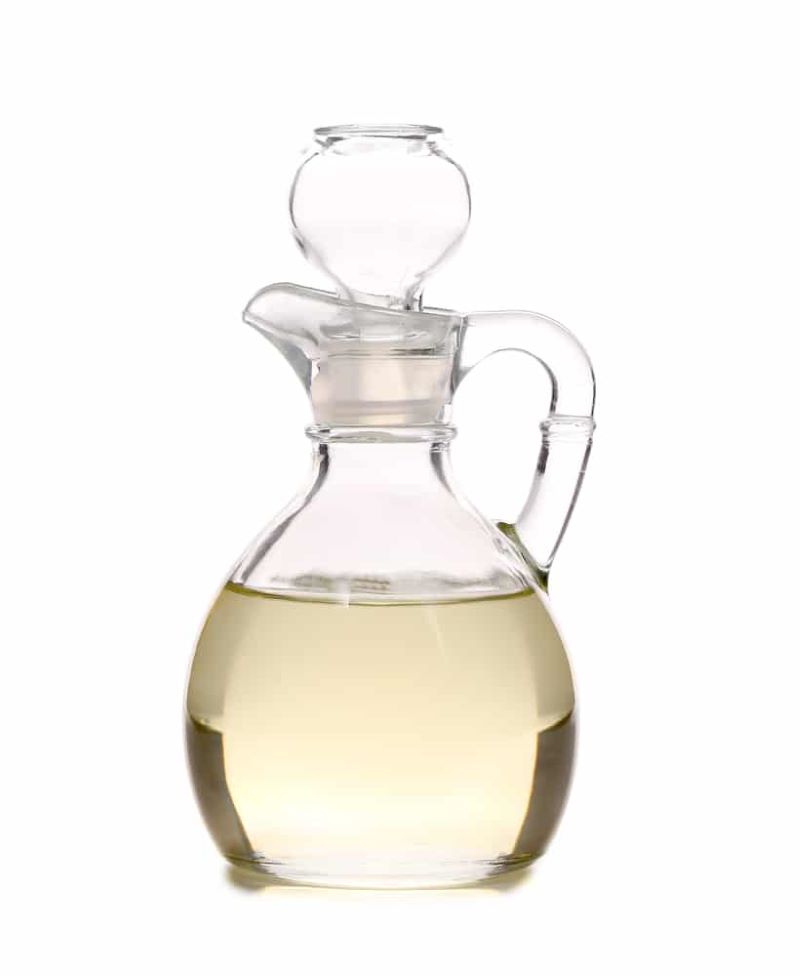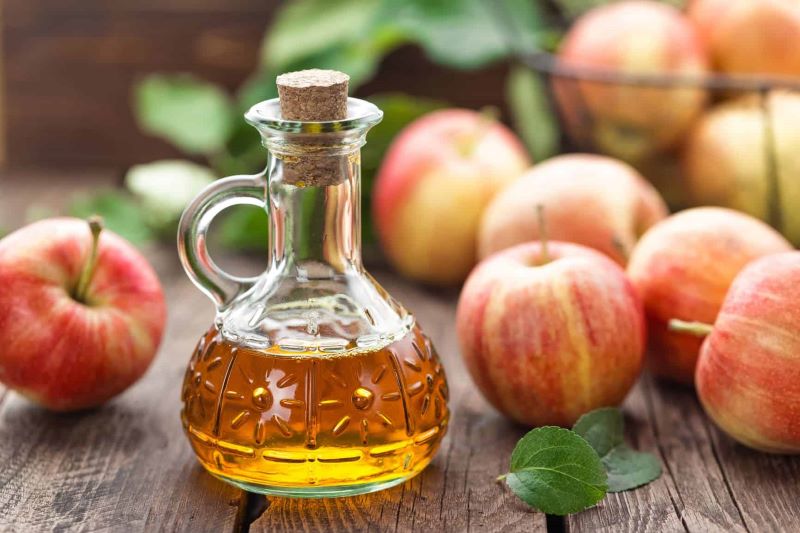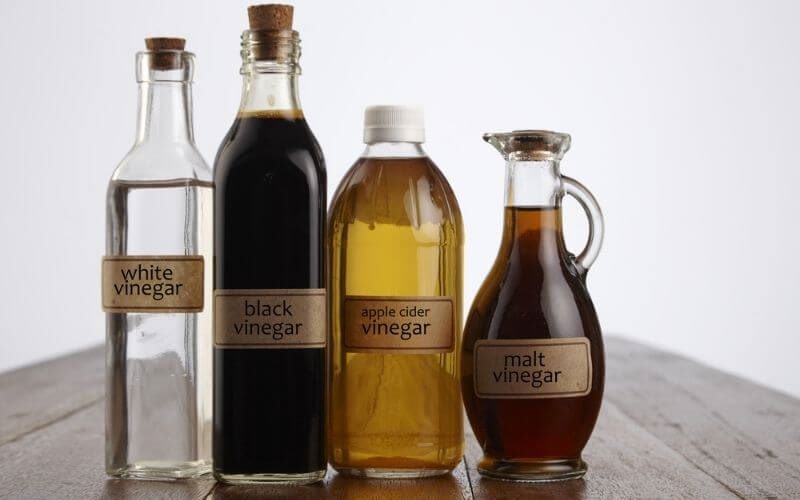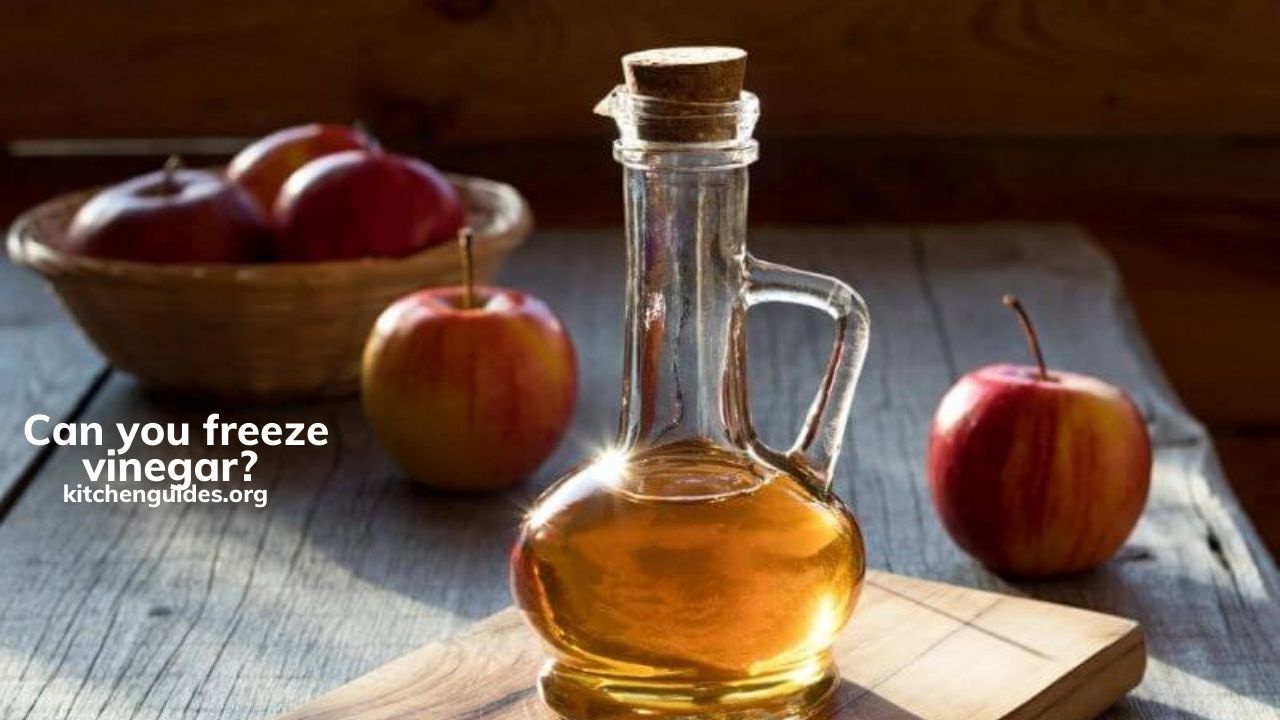Vinegar is a staple in most households. It is used in cooking as a flavor enhancer, a marinade, and for pickling. It is also a versatile cleaning product that can tackle tough grime and grease in the kitchen and bathroom. But, can vinegar be frozen? And, if so, is it safe to use once thawed? This blog post will explore these questions and provide useful tips for those who want to freeze vinegar.
What is Vinegar?
Vinegar is a solution of acetic acid and water. It is made by fermenting alcohol, usually from wine, beer, or cider. There are many different types of vinegar, including distilled white vinegar, apple cider vinegar, balsamic vinegar, and rice vinegar. Each type has its own unique flavor, aroma, and color, making it an essential ingredient in many recipes.
In cooking, vinegar is often used as a condiment to add tanginess to sauces, marinades, and dressings. It is also used in pickling and canning, to preserve the flavor and texture of fruits and vegetables.
In household cleaning, vinegar is a natural and effective alternative to harsh chemicals. It is particularly useful in cleaning bathroom and kitchen surfaces, as it can remove soap scum, mineral deposits, and grease.
Can You Freeze Vinegar?
Yes, vinegar can be frozen, but it is important to keep in mind that the freezing process may cause some changes in its texture and consistency. When vinegar is frozen, the liquid can expand and cause the container to crack or break, so it is recommended to use a freezer-safe container with enough headroom to accommodate for any expansion.
Also, vinegar that has been frozen may become cloudy, and its flavor and aroma may be slightly altered, but it should still be safe to use for cooking and cleaning purposes after it has been thawed. However, if the appearance or odor seems off, it may be best to discard it.
Why You Should Freeze Vinegar?

Vinegar is a common ingredient in many kitchens. It’s used to add tartness to dressings and sauces, it’s the main ingredient in some household cleaners and it can even be used as a natural beauty aid. However, did you know that vinegar can be frozen?
There are many reasons why you should freeze vinegar:
1. It helps prolong its shelf life.
The vinegar naturally goes bad with time because of the exposure to air. Freezing it can help preserve it for up to 6 months without any changes in flavor or quality.
2. It makes a great base for other sauces and marinades.
You can make some really delicious sauces using vinegar as their base. For example, if you want to make an Italian salad dressing, just mix olive oil with some balsamic vinegar and herbs like basil or oregano or even oregano and garlic powder for an easy marinade for chicken or fish dishes! You can also try adding some herbs to your vinegar and freezing it, so you can use it when making salads.
3. It works as a preservative for vegetables and fruits.
You can mix vinegar with fruits like strawberries or make some pickled mushrooms using vinegar.
4. It is a great cleaning product to have in your home.
You can use it to clean almost anything around the house including windows, kitchens, and bathroom fixtures.
How to Freeze Vinegar

Vinegar is a useful ingredient that helps to preserve food and add flavor. However, it does not last forever. Vinegar can lose its potency over time and become less effective for use in cooking. Freezing vinegar will keep it fresh for years and allow you to easily access the liquid when needed.
Freezing Large Amounts of Vinegar
Freezing vinegar is an easy way to preserve it for extended storage. Vinegar is so versatile in the kitchen, and freezing it will ensure you always have some on hand when you need it.
Freezing vinegar is also a great way to preserve it if you have a large amount from a homebrew or winemaking project.
The process for freezing vinegar is very simple:
Step 1: Pour the vinegar into containers with tight-fitting lids. Make sure the container is completely dry before adding the vinegar.
Step 2: Use containers that are deep enough to allow for the expansion of the liquid during freezing.
Step 3: Freeze the vinegar for several hours or overnight until completely solid (depending on temperature).
Step 4: Remove from freezer and allow to thaw completely before using in recipes
Freezing Small Amounts of Vinegar
If you have a small amount of vinegar that needs to be stored, you can freeze it. If you are not sure how much vinegar you have, use a measuring cup or another container that can be filled with liquid and marked with water lines. Make sure the container is made of a material that will not break from the cold.
Vinegar can be frozen in smaller amounts, too. Here’s how:
Step 1: Place a small funnel on top of a wide-mouth jar or bottle and pour the vinegar into it, stopping when it reaches just below the neck of the bottle or jar. You want to leave enough room at the top for expansion when freezing.
Step 2: Seal with an airtight lid and place in your freezer, where it will keep indefinitely.
Step 3: To use, let it thaw completely at room temperature before using it in recipes (it will last longer if you don’t open it).
What Temperature Does Vinegar Freeze?

Vinegar freezes at an extremely low temperature, and it can actually be frozen in a container. However, the freezing point of vinegar is so low that it’s difficult to actually freeze it.
1. About -17 degrees Fahrenheit (-27 degrees Celsius).
This means that if you had a room-temperature bottle of vinegar and put it in your freezer at zero degrees Fahrenheit, it would take several days for the vinegar to freeze!
2. About -20 degrees Fahrenheit (-28.9 degrees Celsius).
This temperature is much lower than the freezing point of water, which is 32 degrees Fahrenheit (0 degrees Celsius). Because of this, vinegar can be used in many ways during the winter months, including for making homemade ice cream and as a de-icing solution.
3. About -22 degrees Fahrenheit (-30 degrees Celsius).
To freeze vinegar, make sure that it’s in an airtight container and store it in your freezer. You don’t need to worry about its flavor going bad, either, because freezing doesn’t alter the taste of vinegar at all.
Tips For Thawing Frozen Vinegar
Vinaigrette is a great way to use up extra vinegar, but if you’re not careful, it can go bad. Vinegar freezes well, but it’s not easy to thaw frozen vinegar without losing its flavor and aroma.
This is how you can safely thaw and use your frozen vinegar:
1. Use a microwave or a bowl of hot water.
The best way to thaw vinegar is by using either a microwave or a bowl of hot water. You can also use a bowl of warm water, but don’t put the vinegar in there because it will start to melt and then you won’t be able to get all the frozen pieces out later.
2. Use room temperature water when microwaving.
When microwaving frozen vinegar, make sure that the water is at room temperature before putting it in with the vinegar bottles. Using cold water could crack the bottles, which would make them unusable if they leak once they are opened again!
3. Place it in the refrigerator overnight or until completely thawed.
You can also place smaller containers in cold water and let them sit there until they are thawed enough to use.
4. Soak the Vinegar in Water
To thaw out frozen vinegar, you’ll need to get it into liquid form first. One method is to pour some water into a bowl, add some vinegar and then let it sit overnight. The mixture should be enough to cover your frozen vinegar bottle so that it can fully melt.
5. Use Hot Water Baths
Another way to melt frozen vinegar is by submerging the bottle in hot water baths until it melts completely into a liquid state. You can either use a pot of boiling water or even boil some water on the stove and put your vinegar bottle inside for around 10 minutes or so until it has melted enough for you to use as needed again!
FAQs
1. Is freezing vinegar bad for it?
Freezing will cause the vinegar to clump together and separate from the liquid. This may cause cloudiness or discoloration in your vinegar over time.
2. Can you freeze pickles?
Yes! You can freeze pickles for up to 3 months. Just make sure that you drain them before storing them in an airtight container in the freezer.
3. Can Vinegar Go Bad?
Vinegar can go bad if not stored properly. The main problem with vinegar is oxidation, which can cause it to darken in color or develop sediment at the bottom of the container. This does not make it harmful, but it is still best to throw out old vinegar before using it for cooking.
4. What Happens to Vinegar When It Is Frozen?
Vinegar is a liquid that becomes a solid when frozen. When you take it out of the freezer, it will be a solid mass, similar to ice cubes. The pH level of vinegar does not change when it freezes or thaws because the acidity in vinegar does not change with temperature changes.
If you have leftover vinegar from your last recipe and want to store it for later use, there are several things to consider before doing so. Vinegar can be stored in many different ways depending on how long you want to keep it fresh or if there’s any concern about contamination or spoilage.
5. How long can I keep my frozen vinegar in storage?
If stored properly at 0 degrees Fahrenheit (-18 degrees Celsius), your frozen vinegar should keep indefinitely without any loss of quality or safety concerns associated with this storage method. However, after being removed from storage and allowed to return to room temperature before opening, there may be some slight changes in texture or color due to exposure to heat which could cause discoloration over time
In Summary
So, can you freeze vinegar? The short answer is, yes, technically you can. But don’t expect your hardened, diluted vinegar to look or taste the same as it once did, and definitely don’t expect it to be safe to use in the kitchen.
